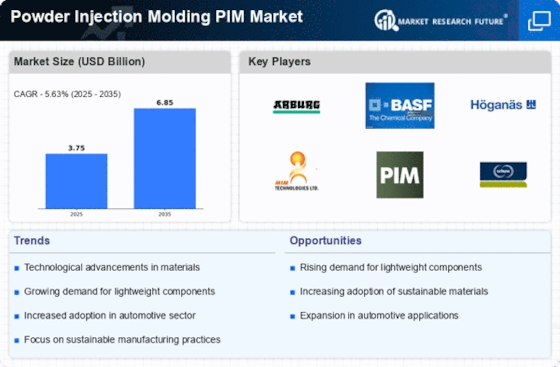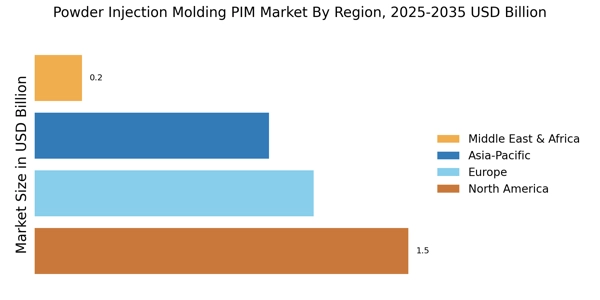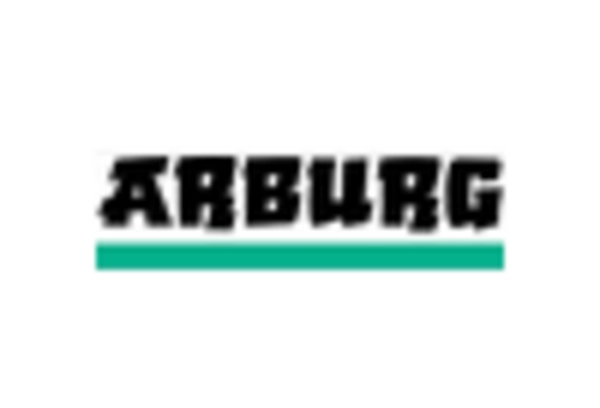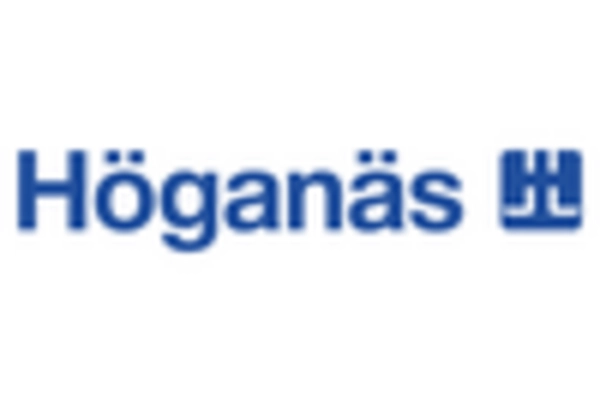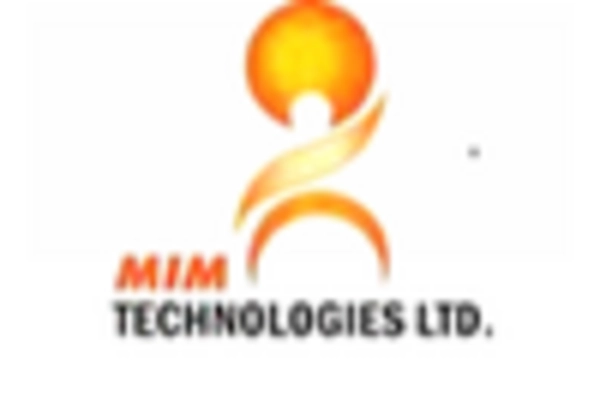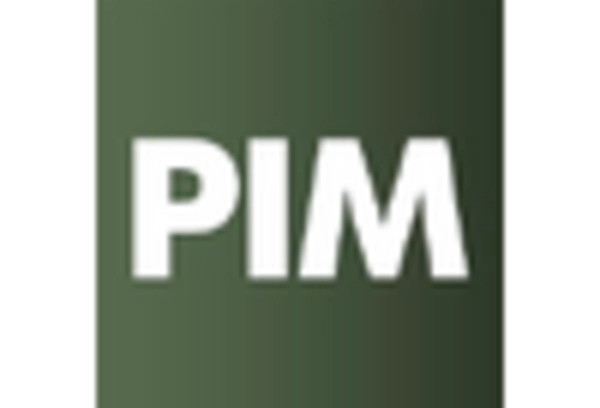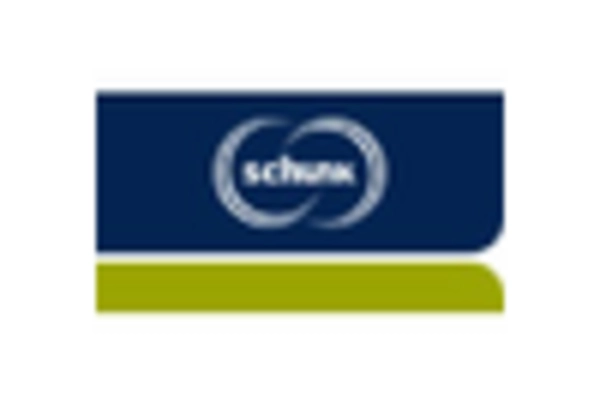Advancements in Material Science
Innovations in material science are playing a crucial role in shaping the Powder Injection Molding Market PIM Market. The development of new feedstock materials, including advanced ceramics and metal alloys, is expanding the range of applications for PIM technology. These materials offer enhanced mechanical properties and thermal resistance, making them suitable for demanding environments. For instance, the introduction of high-performance polymers has opened new avenues for industries such as medical devices and electronics. As manufacturers seek to leverage these advancements, the PIM market is likely to witness a surge in demand for specialized components that require precise tolerances and superior material characteristics. This evolution in material capabilities suggests a promising future for the PIM industry.
Growing Applications in Medical Devices
The Powder Injection Molding Market PIM Market is experiencing a surge in applications within the medical device sector. The demand for precision-engineered components, such as surgical instruments and implants, is on the rise due to advancements in healthcare technology. PIM offers the ability to produce complex geometries with high accuracy, which is critical for medical applications. Furthermore, the increasing prevalence of minimally invasive procedures is driving the need for smaller, more intricate components that can be efficiently manufactured using PIM techniques. Market data suggests that the medical device segment is expected to grow significantly, potentially accounting for a substantial portion of the overall PIM market. This trend underscores the importance of PIM in meeting the evolving needs of the healthcare industry.
Rising Demand for Lightweight Components
The Powder Injection Molding Market PIM Market is experiencing a notable increase in demand for lightweight components across various sectors, particularly in automotive and aerospace applications. As manufacturers strive to enhance fuel efficiency and reduce emissions, the need for lightweight materials becomes paramount. PIM technology allows for the production of complex geometries with reduced weight, which is essential for meeting stringent regulatory standards. According to recent data, the automotive sector is projected to account for a significant share of the PIM market, driven by the ongoing shift towards electric vehicles. This trend indicates a growing reliance on advanced manufacturing techniques, such as PIM, to produce high-performance components that meet both functional and environmental requirements.
Increased Focus on Automation and Efficiency
The Powder Injection Molding Market PIM Market is witnessing a significant shift towards automation and efficiency in manufacturing processes. As companies aim to reduce production costs and improve output quality, the integration of automated systems is becoming increasingly prevalent. This trend is particularly evident in the automotive and consumer goods sectors, where high-volume production is essential. Automation not only enhances the speed of production but also minimizes human error, leading to more consistent product quality. Recent studies indicate that the adoption of automated PIM systems could potentially increase production rates by up to 30%, thereby driving market growth. This focus on efficiency aligns with broader industry trends towards lean manufacturing and just-in-time production.
Sustainability and Environmental Considerations
Sustainability is becoming a central theme in the Powder Injection Molding Market PIM Market, as manufacturers increasingly prioritize environmentally friendly practices. The push for sustainable production methods is leading to the development of recyclable and biodegradable materials suitable for PIM processes. Companies are recognizing the importance of reducing their carbon footprint and are actively seeking ways to implement sustainable practices in their operations. This shift is not only driven by regulatory pressures but also by consumer demand for eco-friendly products. As a result, the PIM market is likely to see a rise in the adoption of sustainable materials and processes, which could enhance the industry's reputation and appeal to environmentally conscious consumers.


